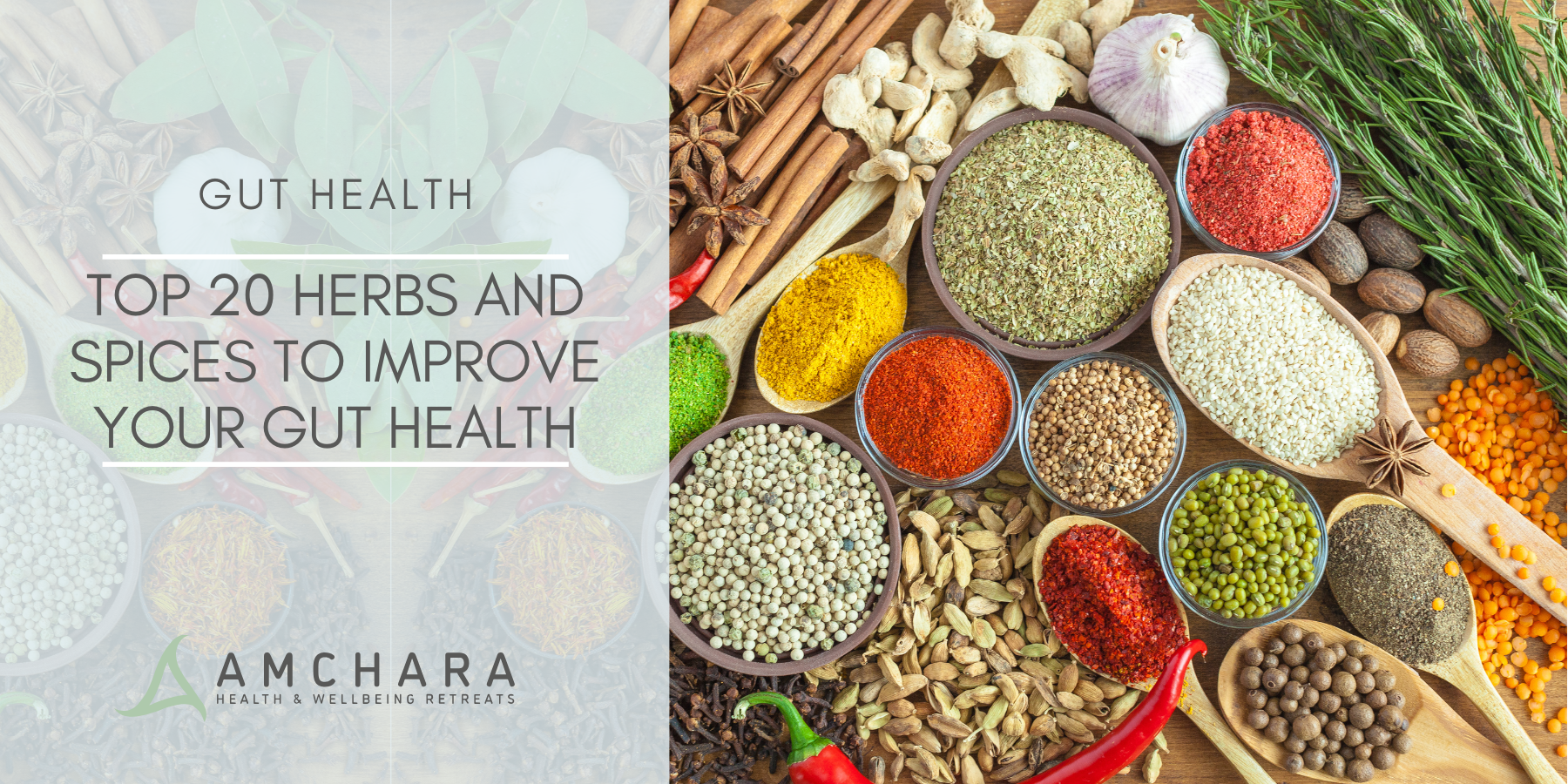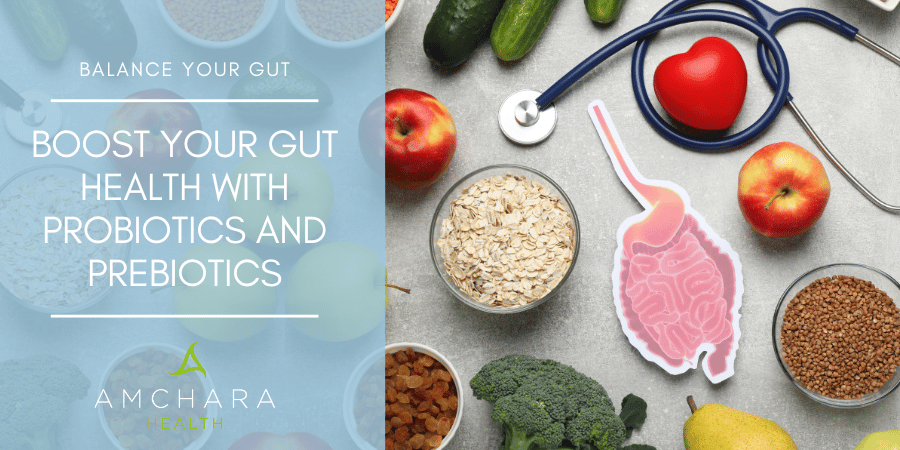IBS, otherwise known as irritable bowel syndrome, affects at least 13.2 million people in the UK.
It’s likely that this figure is on the conservative side, as many cases of IBS go unreported to GPs (1).
More women than men are troubled with symptoms.
In the modern internet world there is an overwhelming amount of information and it can be hard for you to find health advice that you can trust, particularly as the main media channels are typically dominated with a single, orthodox narrative.
Our mission is to provide you with both insightful information and evidence-based content to provide you with actionable knowledge and tips to help you on your journey to optimal health.
In this article we’ll look at the common causes of IBS, and some amazing foods which can naturally support your gut health.
What is IBS?
Symptoms of IBS can vary from individual to individual, but often include bloating, abdominal pain, excess wind, diarrhoea, constipation and fatigue.
These symptoms often come on suddenly.
IBS can lead to time missed from work or school and anxiety about social situations, travelling and being away from home.
Often sufferers are embarrassed to talk about their symptoms.
IBS is really a term coined for any digestive problems which can’t be labelled as a functional disease such as diverticulitis or gastric ulcer.
Functional medicine is concerned with identifying the underlying causes of symptoms, which may differ from person to person.
So let’s take a look at some factors which can cause IBS.
Once we identify the reasons behind symptoms, we stand a chance of putting them right and in this case, restore healthy digestive function.
The Digestive System – More Than Just Food
Our digestive system influences the health of every other part of the body.
It allows nutrients into the body and keeps out invaders.
If it doesn’t allow the correct nutrients to be absorbed, we can end up suffering from nutritional deficiencies.
On the other hand, if it allows the wrong ones in, they can cause problems such as allergic reactions or bacterial and viral infections.
The digestive system plays a crucial role in our immune system, with around 70% of our immune system residing in the gut.
It’s also intimately connected with our brain.
Scientists have discovered a nervous system along the entire length of the gut which is referred to as the second brain or enteric nervous system.
This nervous system communicates with the brain and vice versa. So the digestive system can even play a role in mental health.
We’ve all experienced the enteric nervous system and the brain communicating with one another – who has ever felt sick to their stomach with anxiety?
Our Microbiota – Friendly Gut Bacteria
At the root of almost all cases of IBS lies a disturbance in the natural balance of the bacteria (the microbiota or microbiome) that reside in our intestines.
We each play host to between 500 and 1000 different species of bacteria, around as many bacteria as we have cells in our entire body.
It’s estimated these bacteria can weigh as much as 2kg!
What’s fascinating is that the makeup of your population of bacteria is totally unique to you, and you’ll have a different population of bacteria today than you did ten years ago.
Your intestinal bacteria perform a huge range of essential functions, such as helping to digest and absorb nutrients, synthesise certain vitamins, assist the immune system and prevent the growth of pathogens.
Of those thousands of different species, some are beneficial to our health and some are not.
It’s the balance between the friendly and unfriendly types that is crucial.
The more species of bacteria you have in your gut, the better off you’ll be as they all work in synergy.
When an imbalance occurs resulting in too many unfriendly types of bacteria, a condition known as dysbiosis occurs.
This is when you may start to notice the symptoms of IBS.
According to David Perlmutter MD , ‘A healthy microbiome translates into a healthy human.’
So many factors in modern life can damage or wipe out our beneficial bacteria.
These include stress, smoking, alcohol, antibiotics and many other medications such as NSAIDs, along with an unhealthy diet containing sugar and processed foods.
The majority of our bacteria reside in our large intestine.
The small intestine on the other hand does not naturally play host to a great deal of bacteria.
Sometimes, a person may have an overgrowth of bacteria in the small intestine – called small intestine bacterial overgrowth or SIBO – the symptoms of which are similar to those of IBS.
The excess bacteria feed off any undigested food in your small intestine.
As they feed, the carbohydrates ferment, which produces hydrogen which in turn encourages the production of methane – causing belching, bloating and wind after eating.
Is Your Gut Leaking?
Our population of digestive bacteria is closely connected with the condition of the lining of our digestive system.
The digestive lining performs a dual function – it allows absorption of nutrients and prevents disease-causing organism from accessing the body.
It’s a delicate structure, just a few millimetres thick, and if stretched out would cover between 30 and 40 square metres.
The small intestine has by far the largest surface area, as it consists of many tiny folds and projections to absorb nutrients.
The small intestinal lining has tiny gaps known as tight junctions which allow nutrients and water to pass through.
A special protein called zonulin regulates these gaps, and if there’s too much of it, the junctions may loosen and become too large.
They then allow substances through that ideally shouldn’t gain access to the body.
This is commonly called ‘leaky gut’.
Research suggests our microbiome may influence the level of zonulin.
One study (2) found cells in the lining of the small intestine secreted zonulin when certain bacteria were present, which the researchers hypothesised might be a defence mechanism to try and flush out bacteria that should not be there.
This could be the link between SIBO and leaky gut.
Other factors which can lead to leaky gut include gluten grains, inflammation of the intestinal lining, parasitic infestations of the gut and medicines like aspirin and anti-inflammatories.
Constipation can also lead to leaky gut, as the intestinal contents sit around for longer than they should, causing inflammation to your digestive lining.
Food Intolerance – a Sign of an Unhappy Digestive System
An intestinal lining which is too permeable can lead to food intolerances.
Sometimes, food particles that haven’t been completely digested are absorbed into the bloodstream through those big gaps mentioned earlier.
Because they are foreign to the body in that state, they’re not recognised and can trigger an immune response.
Common culprits are gluten grains, soya and dairy products.
The answer is not necessarily to entirely remove these culprits from the diet, over-restriction of entire food groups can itself lead to nutrient deficiencies.
There is now a bewildering array of ‘free from’ foods, as many food manufacturers have jumped onto this commercial opportunity.
Many of these alternative foods are packed with additives and preservatives which are just the sorts of chemicals which can further damage the gut lining and make digestive problems worse.
Another problem with cutting out foods from our diet to avoid food intolerances is that by doing this we don’t correct the underlying causes.
Further food intolerances can develop over time and the diet could end up being very restrictive.
7 Foods to Support IBS
There is a wealth of information telling us what not to eat when we have IBS.
Let’s turn this on its head and have a look at 7 foods which can help support a healthy digestive system and may help reduce symptoms of IBS.
Scientists have found a diet high in plant based foods (3) can help encourage the growth of beneficial bacteria, so all the foods on our list are of plant origin.
1. Sauerkraut
Sauerkraut, with its distinctive taste, has been loved by Germans for centuries, but it originated from China.
Sauerkraut is fermented raw shredded cabbage, which contains many strains of bacteria (4).
When certain foods are allowed to ferment, the natural bacteria they contain will multiply and create lactic acid which preserves the food.
These bacteria can have a beneficial effect on our digestive function.
According to Dr Axe, the bacteria can take up residence in the lining and folds of your intestinal walls and help to lower inflammation.
Kimchi is a Korean alternative to Sauerkraut which has gained popularity in the West in recent years.
It’s also fermented cabbage but contains added chilli powder, onion, garlic, red pepper powder and ginger so it’s even more flavoursome.
Traditionally it’s made with fish stock, but vegetarian alternatives are now available.
Like sauerkraut, it contains beneficial bacteria. (5)
Note however that heating or pasteurising sauerkraut or kimchi will kill off the bacteria.
Try making your own instead – it’s simple!
Be careful of portion size, as they’re both high in salt.
2. Kefir
A watery, refreshing, sour tasting drink, kefir is traditionally made from cultured dairy, and originated in the mountainous regions between Europe and Russia.
That kefir can be beneficial for health is hinted at by the meaning of its name, which comes from a Turkish word meaning ‘feeling good after eating’.
Kefir can also be made from water or coconut milk.
The starting liquid is fermented by a culture called kefir grains, which contains yeasts and as many as 60 strains of beneficial bacteria.
The bacteria produce carbon dioxide which gives kefir its slight fizz.
One of the bacterial strains is called Lactobacillus kefiri, which research has shown can inhibit the growth of harmful bacteria associated with gut inflammation.(6)
It also contains a type of carbohydrate called kefiran (7) which has antibacterial properties.
It’s easy to make yourself using a starter which is simply added to your milk of choice and left at room temperature for 24 hours.
The starter can be used time and time again, and you’ll end up with more starter every time you make kefir.
That’s one of the fun things about it – you can pass on your excess starter to friends.
Kefir can be drunk as it is, combined with fruit or added to smoothies.
3. Turmeric and Ginger
Here we’re getting two for the price of one, although they’re in the same family and look quite alike.
The gorgeously golden coloured turmeric has been used for medicinal purposes for centuries in both Chinese and Ayurvedic medicine.
Its active ingredient, curcumin, is a powerful anti-inflammatory, and has been used with success in patients suffering from ulcerative colitis. (8)
This occurs when the large intestine becomes inflamed.
The active ingredient in turmeric is best absorbed when eaten alongside some fat and black pepper.
Ginger has a long tradition of being used to alleviate stomach ailments, but it also appears to help counteract excess wind, because it acts as a carminative, breaking down gas in the digestive tract. It’s also anti-inflammatory. (9)
Try making this warming ginger and turmeric detox tea.
4. Tempeh
Tempeh is once again a fermented food, originating this time from Indonesia.
It can be made from both soy and beans. It’s a bit like tofu but has a sour taste and unlike tofu it’s always fermented.
As well as transforming the bean or soy into an easily digested form, Tempeh was found in studies (10) to beneficially alter the population of bacteria, even when fried.
Tempeh ideally needs seasoning to make it taste palatable.
Tempeh can be used in stir fries, curries , in salads or even grilled and served in a bun like a burger.
5. Coconut Oil
For decades coconut oil was shunned by dieticians because of its saturated fat content.
We now know it contains special types of saturated fat, called medium chain triglycerides which are beneficial to the body.
About half of the fatty acids in coconut oil are comprised of lauric acid which is a natural anti-microbial (11) and can kill the undesirable bacteria in your digestive system as well as viruses and yeasts.
Coconut oil also appears to act as a natural anti-inflammatory. (12)
The great thing about coconut oil is it’s so versatile.
It’s stable when heated so can be used for frying, it can be added to smoothies or even enjoyed straight from the spoon.
6. Kombucha
Kombucha is a fermented tea which has been drunk for thousands of years in Asia.
It contains beneficial bacteria produced during the fermentation process. (13)
It also contains high levels of antioxidants. You can find it in health food stores and some supermarkets.
7. Jerusalem Artichoke
Jerusalem artichokes are a knobbly root vegetable which contain a type of fibre called inulin.
This is a type of soluble fibre known as a prebiotic which acts as food for our beneficial bacteria.
Studies show (14) intestinal bacteria improve after consuming Jerusalem artichoke.
Jerusalem artichoke makes a delicious creamy soup or use it raw shredded into salads.
A word of caution.
Some people with SIBO may find foods containing this type of fibre gives them gas.
Inulin is a type of short-chain carbohydrate which belongs to a group of carbohydrates known as FODMAPs.
If you eat Jerusalem artichoke and afterwards suffer from wind, that may be a clue FODMAPs are a problem for you.
However, there are a great many foods containing FODMAPs, so avoiding them all could mean your diet becomes unbalanced.
Just as with food intolerances, in this case it’s always best to work with a nutritional practitioner or naturopath , who can devise a personalised treatment programme aimed at correcting the root cause of the problem so a wider range of foods can be tolerated once more.
Take Home Message
If you suffer from IBS, it’s a good idea to chew your food really well – around 30 -40 times per bite – as digestion starts in the mouth.
Raw food may be a problem if your digestion is compromised, so don’t go overboard.
Sprout or soak nuts and seeds before eating to make them more digestible.
Make sure you’re eating enough foods rich in omega-3 like flax seeds and wild caught oily fish.
Vary your foods – don’t keep on eating the same food, however healthy, day in and day out.
Practise mindful eating and don’t eat and run.
A stay at an Amchara retreat can be a wonderful opportunity to kickstart your gut healing programme.
This could combine a period of fasting to give your digestion a rest, along with colonics or coffee enemas to help cleanse the bowel.
An Amchara practitioner can recommend appropriate tests to detect any food intolerances or to assess your microbiota.
(Enquire about your free gut health consultation today!)
READ NEXT:








